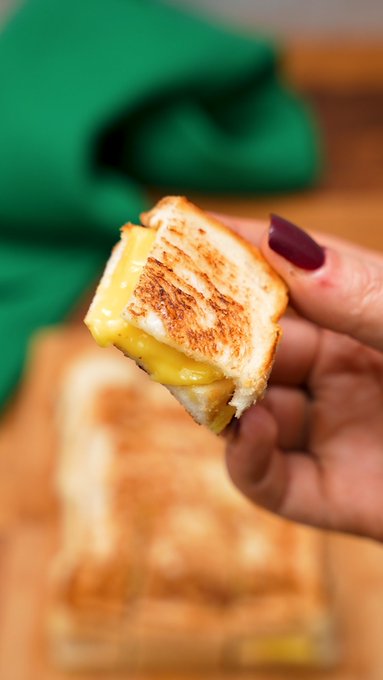Today is Ash Wednesday, the start of Lent.
While Catholic observances tend to at least somewhat baffle those who are not familiar with them, and therefore reinterpret them either though the bigoted Anglicization of popular history they've received, or through their own broken lenses on the world, lots of people are at least somewhat familiar with them. One of the things they're somewhat familiar with is fasting.
We've dealt with this before, but Latin Rite Catholics have a minimal duty of fast and abstinence during Lent. And it is indeed very minimal. The fast days are now down to two. There are more days of abstinence during Lent.
And this post isn't about that.
Rather, this post is about American secular suffering and its pointless nature.
I'm occasionally the accidental unwilling silent third person in a long running conversation between two people on diets, which they're constantly off and on. The oddity of it is that neither of the two people involved have any need whatsoever to be on a diet. They aren't even ballpark close to being overweight. None the less, they'll go on diets and the diets tend to be based on pseudoscience.
I don't want to be harsh on people for this as there's now so much pseudoscience in American culture it's simply mind boggling. We've gone from a society that in the 1960s and 1970s emphasized science to one that now abhors it and goes for non scientific faddism. There are so many examples of this that actually going into all of it would require a blog the size of the Internet at this point. Food faddism is common.
Not a day goes by when I don't get a bunch of spam posts (and how ironic that they'd be called "spam" devoted to dietary bullshit, most of which has to do with eating something that will "melt away fat", probably overnight so that you don't have to be inconvenienced while watching television during the day. It's not going to do that. A wild example of that is one that bills itself as some sort of ice cream, with the photographs in the spam showing chocolate ice cream. Chocolate ice cream is disgusting in the first place, and it's not going to make you think.
Anyhow, these two fit people are constantly on diets of the faddish variety, involving such things as "cleanses" and the like. None of that does anything, at least not in the way a person thinks. Some of it might, accidentally, such as abstaining from alcohol. That'll do something, but not in a cleanse fashion. And some of it probably does something as it approaches a sort of low yield style of intermittent fasting.
I've now watched people on diets for decades, and I'm wholly convinced that none of them doing anything whatsoever. I've watched people on Keto lose weight and then balloon back up to just as heavy as they were before, for example.
Nothing ultimately escapes from the basic fact that weight=calories in-calories out. That's it.
So you can be on keto, but if you eat bacon and eggs for breakfast, a ham for lunch, and then go eat a big dinner, you're going to be really heavy if you are an office worker. Pretty simple.
That is why, I'll note, intermittent fasting actually does cause people to lose weight, but it's not a diet, it's fasting. I'll also note that I'm not a doctor and I'm not telling you to fast to lose weight. If you need to lose weight, see your doctor. A real doctor. Not the homeopathic doctor of Burmese weight loss and orthopody. No, not him. A real bonafide physician. They exist.
Anyhow, I don't think that a lot of people need to go on diets at all, including the folks I just noted.
Now, some people really do. A lot of Americans are really, really, heavy. Some say a majority are overweight. I get that. But none the less I'd guess about 60% of the people I see on diets or discussing diets are not overweight. I don't think they go on diets, deep down, as they're overweight.
They do it as they need to be suffering for something.
Now, this gets back to Lent. Catholics don't fast and abstain in order to suffer. They do it in order to focus and build discipline, and sacrifice for their sins. If it involves an element of suffering, well so do a lot of things.
But devoted Catholics accept suffering as part of life. It's inescapable. Life is full of suffering. Part of that suffering is brought about by license.
The irony of freedom is that freedom to chose isn't freedom. License doesn't actually equal liberty. The freedom to chose is the freedom to chose wisely, and that brings a sort of real freedom. It doesn't mean, kid like, that I can choose to eat ice cream for dinner, and it doesn't mean, modern society like, that I chose all the members of the opposite sex, or whatever, that I might fancy at the moment.
And indeed, that sort of "freedom" leads not to freedom but to slavery. People become enslaved to their wants. A massive amount of American culture is now presently completely devoted to slavery of this type, particularly sexual slavery of both an intellectual and actual kind. The entire pornography industry is a type of "white slavery", involving the prostitution of women and the enslavement of men to lust.
Catholic fasting ties into freedom as it has as an element the concept of building resistance to enslavement. If you can say no to food you can also say no to alcohol, or tobacco, or to vice. It might take practice, hence the discipline of fasting.
Which is also why the slow Latin relaxing of fasting and abstinence rules was, in my view, a real mistake. The concept of the Church in North American, for example, that relaxing abstinence on Friday's throughout the year would result in the substitution of a meaningful personal substitute was, frankly, largely wrong.
And it achieves, of course, more than that.
Fasting, experienced as a form of self-denial, helps those who undertake it in simplicity of heart to rediscover God’s gift and to recognize that, created in his image and likeness, we find our fulfilment in him. In embracing the experience of poverty, those who fast make themselves poor with the poor and accumulate the treasure of a love both received and shared. In this way, fasting helps us to love God and our neighbour, inasmuch as love, as Saint Thomas Aquinas teaches, is a movement outwards that focuses our attention on others and considers them as one with ourselves.
Pope Francis, Lenten message, 2021.
Secular fasting doesn't actually achieve anything. But then, much of modern American life is aimless and directionless. It's been wholly focused on materialism and nothing else. People aren't rooted to place or people as those things interfere with "freedom". They aren't bound by traditional rules of right and wrong, obligation and duty, service to country and community, or the obligations imposed by law outside of the civil law, those being the walls of canon law and natural law, and biological law. They aren't even accepting of the final binds of death, which Americans don't acknowledge as real, and which provides the reason that at 40 years old you aren't going to be the physical specimen you were at 20, and things will certainly be different at 60.
Now, to be sure, most Catholics are no different in the modern world than anyone else. A people who were once outside of the culture as they were different, where they were a minority, and were outside the world in a way as they were distinct from it even where they were a majority, now fall prey to all the modern vices that are portrayed as virtues, and self excuse those that are regarded by the Church as sins. Some of the Church religious itself, mostly older baby boomer aged whose time is past but they don't realize it, still campaign to overthrow Church law in the name of temporal freedom, not realizing that they propose to bring in the chains of slavery. None of that, however, changes the basic point.
Humans sense that abundance can be slavery. They also reject so often the breaking of their chains. But even when they do, they reach out, darkly, to the disciplines that would free them. They sense they have to do something, and often substitute suffering, vaguely, for the practices that would open the manacles.



































